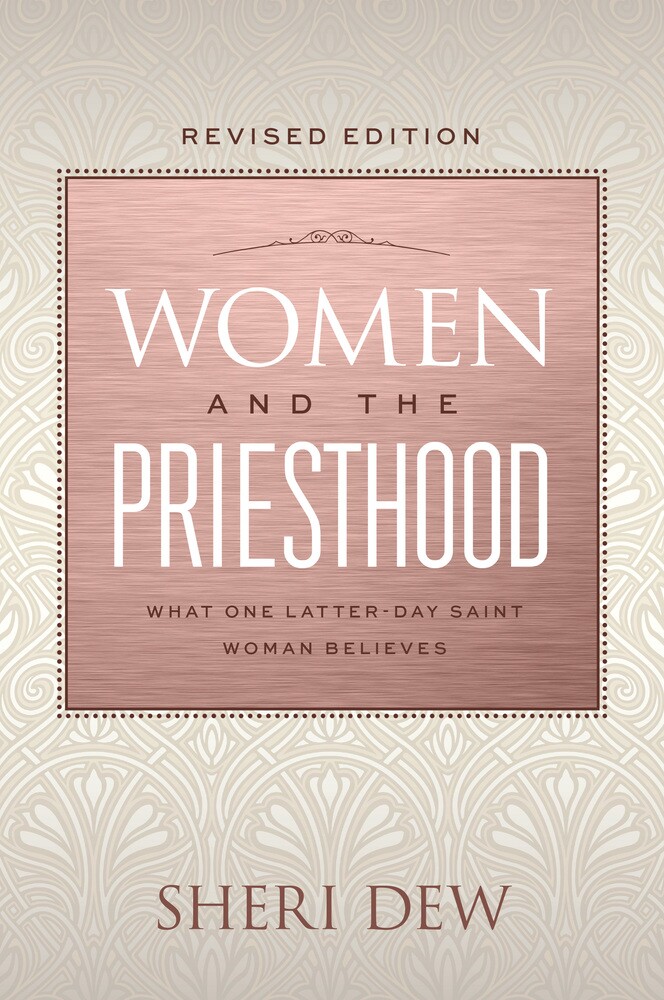There are many things I do not know. I don’t know why some find it easy to believe in God the Father and His Beloved Son Jesus Christ and others struggle to make sense of spiritual things. I don’t know why some learn the lessons of eternity because their prayers are not answered as they desire and others because they are. I don’t know why some plead with the Lord for decades for a husband and family while others seem to marry easily and some of them more than once. I don’t know why some couples have children without difficulty and why other equally desiring couples struggle and plead and pray, but to no avail. I don’t know why some go through life surrounded by large families and groups of friends and others’ lives are marked by loneliness. I don’t know why some lives are characterized by comfort and privilege and others have a constant struggle just providing daily bread. I don’t know why some are plagued with one health problem after another and expend enormous energy just staying alive and others have remarkable health without doing much of anything. I don’t know why the Lord has been explicit about some doctrine while making other principles and pearls of heavenly knowledge available only to sincere seekers through personal revelation.
There are, however, many things that I do know—some through experience and observation; others through immersing myself in the word of God, worshiping in the temple, and studying the teachings of prophets, seers, and revelators; and others still through personal revelation.
I know that women have a divine endowment from God and are mission-critical to the fulfillment of the plan of salvation and to building up the kingdom of God. Evidence of this can be found in every country where the Church is organized.
I know that a woman’s greatest influence and power come from being pure, from obeying the teachings of Jesus Christ, from being true to her divine nature, and from learning how to access the power of God.
I have met and learned from women around the world and witnessed firsthand the inestimable scope of their influence. I have heard them teach and testify, observed their efforts to help the abused and comfort the forlorn, and watched them organize with lightning speed in the aftermath of disasters and provide untiring service to neighbors and friends. I have seen them spend hours comforting those in distress. I have seen them trek with youth, dragging themselves over Rocky Ridge (literally and figuratively) and sitting around smoky campfires testifying to youth that a virtuous life is a happier life. I’ve watched them dream up one imaginative way after another to engage six-year-olds in a gospel discussion and plan youth conferences that capture the attention of skeptical teenagers. I have seen young-adult-age women hold fast to their convictions even when it threatens or diminishes their social life. I know single mothers who have relied on help from heaven to fill the roles of father and mother in establishing a gospel-centered home. I have watched women age, lose their companions, and devote their golden—and sometimes alone—years to serving others. And I have witnessed the deep faith and sensitivity to things of the Spirit of so many female exemplars and role models.
I know women who walk miles along dusty roads to meet with priesthood leaders just to renew their temple recommends, even though there isn’t a temple within a thousand miles, and walk those same roads again to minister to their sisters in the spirit of true watch care. I know other women who take a mind-boggling sequence of buses and subways across congested metropolitan areas just to get to church. I know countless women who shoulder much of the responsibility of making sure Come, Follow Me is studied in their homes. And I know women who have recognized and accepted the gospel though it meant severe criticism and sometimes alienation from loved ones.
I have been inspired by the music, art, and writings women have created to express their testimonies, love of family, and reverence for life. I’ve been motivated by those working to stem the tide against threats to religious liberty. I know women who are among the best educated in the world and who use their skills to teach, enlighten, and inspire. I’ve heard women stand in worldwide forums, declare that there actually is such a thing as right and wrong, and rally their families to stand for truth and righteousness.
I have witnessed firsthand the sacrifice, sheer work, and sometimes thankless effort mothers and grandmothers, aunts and sisters, teachers and friends are willing to expend for those they love and for those whose well-being has been placed in their care.
The Savior said that we would recognize and know His followers by their fruits. I am an eyewitness to the fruits of the gospel of Jesus Christ as played out in the lives of the women of the Church. I have seen that the gospel of Jesus Christ, when lived by a woman, transforms her into a woman of God—because the gospel is about change. The temple is about change. Conversion is about change.
From day one, the women of this dispensation have been pivotal to the onward rolling of the gospel kingdom. In families, communities, and the Church at large, they have been a bulwark against the adversary time and time again.
But is it time to ask ourselves, Can we do more for the Lord?
As Much As We Can
Of all the lessons President Gordon B. Hinckley taught us during his ninety-seven and a half years of living, there is a final lesson to be learned, one demonstrated during the last few years of his life. During my many interviews with him while writing his biography, it became apparent that there were really only two things he feared: getting cancer and losing his wife, Sister Marjorie Pay Hinckley. His mother had died of cancer when he was a young man, a sister had died of cancer, and a brother had died of cancer. He feared cancer. And Sister Hinckley was the love, the joy, and the emotional spark plug of his life. He couldn’t imagine life without her.
Sister Hinckley did not attend the April 2004 general conference. Her absence was a first. In his concluding remarks at the conference, President Hinckley told Church members that she was not well, that her “clock [was] winding down, and we do not know how to rewind it.” He went on to say: “It is a somber time for me. We have been married for 67 years this month. She is the mother of our five gifted and able children, the grandmother of 25 grandchildren and a growing number of great-grandchildren. We’ve walked together side by side through all of these years, coequals and companions through storm and sunshine.”
Two days later, on April 6, 2004, Sister Hinckley slipped through the veil.
In the October general conference six months later, President Hinckley spoke about the “women in our lives,” beginning with a tribute to his beloved wife: “My children and I were at her bedside as she slipped peacefully into eternity. As I held her hand and saw mortal life drain from her fingers, I confess I was overcome. Before I married her, she had been the girl of my dreams, to use the words of a song then popular. She was my dear companion for more than two-thirds of a century, my equal before the Lord, really my superior. And now in my old age, she has again become the girl of my dreams.”
The loss of Sister Hinckley was heartbreaking. But if that weren’t enough, nine months later President Hinckley was diagnosed with the disease he had dreaded most of his life—cancer. He underwent surgery, but the cancer had spread. He was ninety-five years old, and most who knew President Hinckley wondered if he should live out his final days without submitting to any kind of aggressive treatment. But when he asked his doctors if they could administer chemotherapy to someone his age, and if it would extend his life, they agreed to try.
One might wonder why he didn’t take the onset of cancer as an indication that the time had come to be reunited with his beloved Marjorie. But he explained to those close to him, in words to this effect, “I feel I should do all I can to live as long as I can. Then when death strikes, I will know it is the Lord’s will. I will know I did all that I could do.”
President Hinckley lived two years from the time of his original diagnosis, likely twelve to eighteen months longer than he would have otherwise. On January 27, 2008, he passed away.
In this final act of devotion to the Lord, President Hinckley set a pattern for all of us. He demonstrated that, above all, he was determined to do all the Lord had sent him here to do. He modeled the admonition he had given the entire Church when he said: “We are all in this together. . . . Within your sphere of responsibility you have as serious an obligation as do I within my sphere of responsibility. Each of us should be determined to build the kingdom of God on the earth and to further the work of righteousness.”
President Hinckley did as much as he could, for as long as he could.
We Are All Enlisted
That is the challenge for each of us—to do as much as we can for the Lord, for as long as we can.
This is not to say that doing as much as we can for as long as we can is easy, because it isn’t. It requires consecration and devotion. It requires true conversion. It requires us to keep going even when, perhaps especially when, the disappointments and curveballs of life take us places we didn’t expect or want to go.
There isn’t much about my life that I expected or that I have hoped and prayed for. But there is one thing I’ve learned through life’s ups and downs: The only things that really matter are the things that matter to the Lord. Awards and plaques collect dust. Jobs change and sometimes go away. Titles and callings change. Bank accounts go up and down and sometimes disappear. But our Father and His Son do not change. Who we are doesn’t change. Why we are here doesn’t change. And what is important to our lives now and forever doesn’t and won’t change.
What, then, are you and I to do?
A testimony is a wonderful starting point. But it is only a beginning. A testimony, or belief, that the Church is true will not be enough to see us through in the days ahead. It won’t be enough to sustain our own lives, let alone enough to allow others to see the light of the gospel shining through us. As President Henry B. Eyring has taught: “Great faith has a short shelf life.”
Conversion requires immersion. Immersion in truth. Immersion in the scriptures. Immersion in the temple. Immersion through fasting, prayer, and time to contemplate the things of heaven.
We need to think about the Lord more. We need to seek to understand who He is and what He taught.
The more we know about the Lord Jesus Christ, the more we will want to know. The more we testify about what we know, the more it will become integral to who we are. …
Immersing ourselves in the things of heaven … is not about doing more. But it may be about doing things differently. It is definitely about covenant making and covenant keeping. It is about immersing ourselves in the gospel of Jesus Christ so that the Spirit testifies to our spirits in such sustained, penetrating ways that we no longer question, no longer doubt, and no longer entertain temptations to hold back from full commitment to the Lord and His work.



